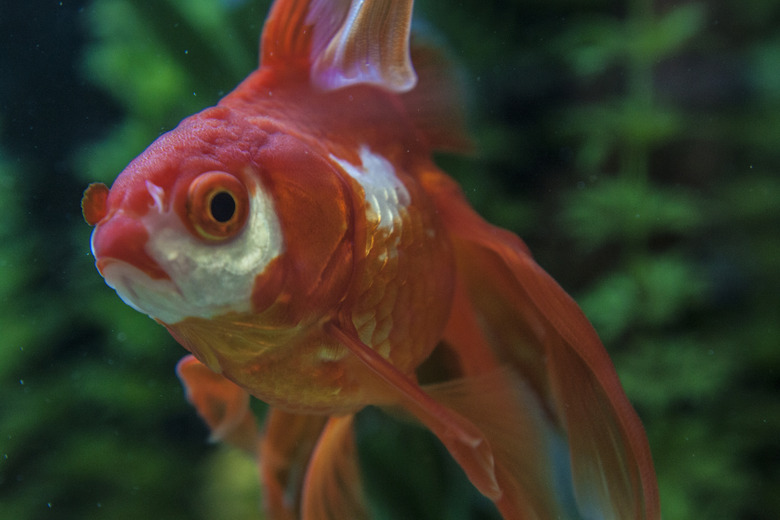How To Heal An Injured Fish
Is your electric blue cichlid feeling a little too blue? Perhaps you don't fancy those tattered fins on your fancy goldfish, or maybe your oscar seems just a bit too grouchy. It is easy to see the symptoms of a sick or injured fish in an aquarium. But don't panic — many fish injuries can be healed through simple remedies you can efficiently administer at home.
How to heal fish fins
How to heal fish fins
Like human roommates, fish don't always get along. More aggressive fish can nip at other fishes' fins leaving them tattered. Betta fish with their long, beautiful fins are particularly susceptible to injury. A bite to a fish's body can cause fish scale damage, as well. Usually, these small infractions can heal themselves with no or little aid with a water conditioner additive like Stress Coat or SeaChem Prime that promotes a healthy slime coat on the fish. The slime coating acts somewhat like a bandaid, protecting them from infections. Separate the injured fish from the aggressor with a tank divider or remove it to a second tank to allow it a chance to heal without further injury.
Curing fish fin rot
Curing fish fin rot
Fish fin rot is different than tattered fins or fish scale damage. The disease itself causes fins to become jagged and fuzzy around the edges, gradually wasting away. A gram-negative bacteria such as Vibrio, Aeromonas, or Pseudomonas is the cause of fin rot, but the bacteria is introduced into open wounds caused by damage from aggressive fish. Chances for fin rot is highest in overcrowded tanks where nitrate levels are high, and successful treatment for the hurt fish involves a multipronged approach.
First, isolate the fish with fin rot. Use a natural, antibacterial product such as Melafix that kills the bacteria. Potent antibiotics such as tetracycline or oxytetracycline are alternatives; however, strong medications can stress your fish since they take it in through their gills and end up ingesting large quantities. Thoroughly clean your aquarium, boiling decorations to kill the bacteria. Make sure that you have adequate filtration for the fish and can maintain the tank at a proper pH and temperature to prevent bacterial growth. Also, avoid overfeeding.
How to heal eye injuries
How to heal eye injuries
Fish with protruding eyes can be prone to injuries in this delicate area. Black Moor eye injury, for example, is common as the fish doesn't see well www.cuteness.com="" blog="" content="" can-goldfish-see-in-the-dark"=""> due to their telescoping eyes that extend out from the head. Bubble-eye goldfish, telescope goldfish, and celestial goldfish injury is common when keeping these bulbous-eyed fish. Eye damage typically appears as a cloudy spot on the cornea. Remove the fish to a separate aquarium during the recovery phase and use a water-conditioning agent to promote the fish's healing slime layer.
Shrimp for fish injuries
Shrimp for fish injuries
Keeping a few shrimp in with your fish can also help the healing process, according to a 2018 study by James Cook University. Scientists researching how shrimp can remove parasites from ornamental or farmed fish discovered that fish injuries appeared less red after being cleaned by the shrimp. The shrimp remove bacteria and dead tissue, but also lower the stress levels of the fish, helping it to heal.
When to see a vet
When to see a vet
Although indoor fish injuries are usually superficial and heal quickly, fish living in a pond can sustain injuries from predators such as hawks or cats that cut much deeper. Bring an injured fish indoors to a separate tank to treat with antibiotics under a fish veterinarian's care. Aggressive aquarium species such as cichlids can sometimes dislocate another's jaw. If the fish is large, a veterinarian might be able to pop it back into place; smaller fish with delicate bones will need euthanization if the injury prevents them from eating.
